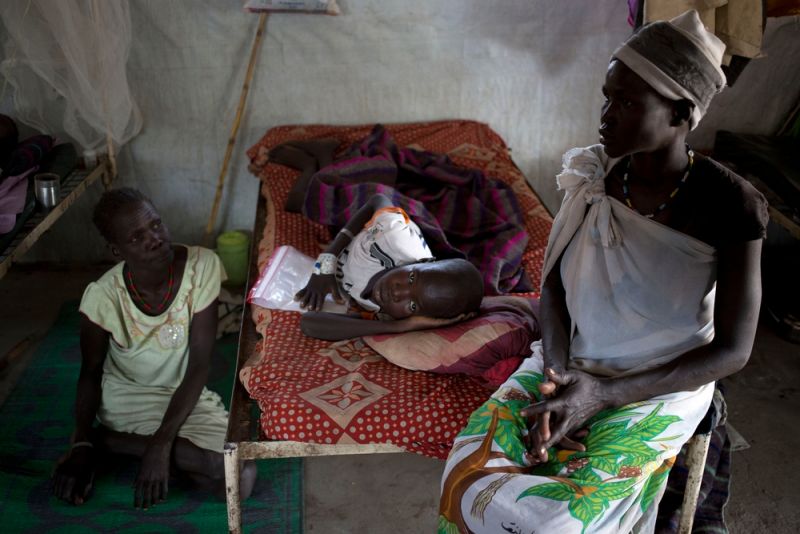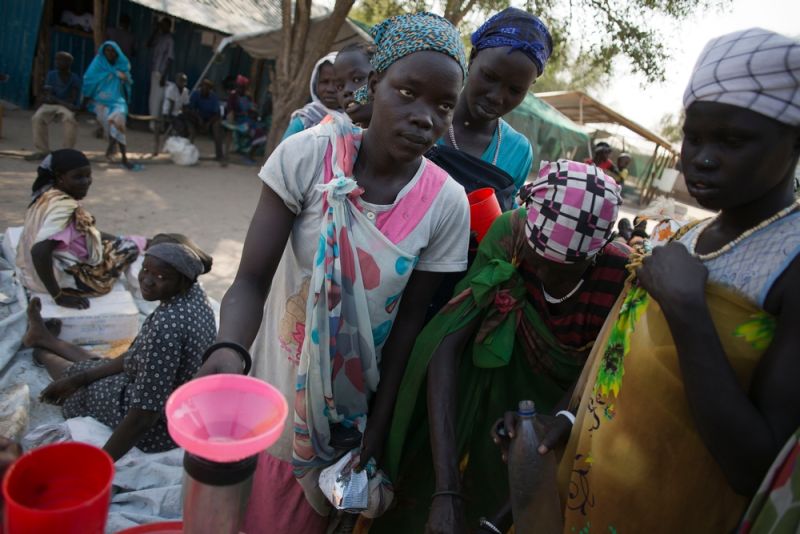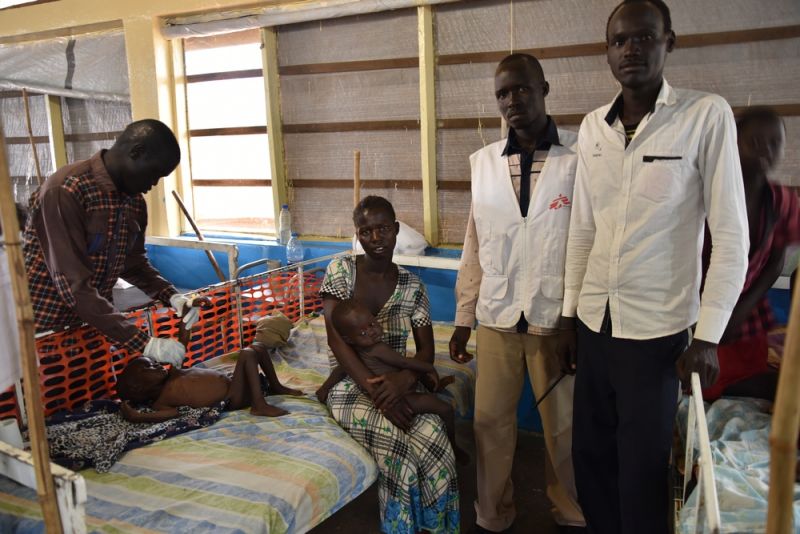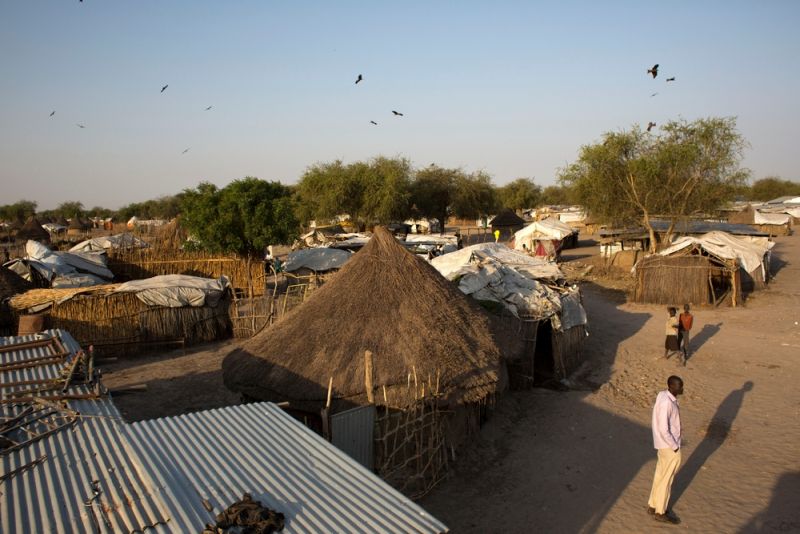
Amy is a nurse from Canada. She blogs about packing up her life at home to join the 300 people working at the MSF hospital in Lankien, in the north of South Sudan.
So here I am in Lankien, South Sudan on a sunny Saturday afternoon. One week ago I was closing down my apartment in Vancouver, writing my paper for the Liverpool tropical nursing course, and trying to figure out how to fit rubber boots and massive quantities of chocolate into my backpack alongside the rest of my gear.
24 hours after that I was sitting in the departure lounge of Vancouver Airport (chocolate and boots successfully incorporated). So began about 30 hours of travel, from Vancouver to London Heathrow, then onward to Nairobi, and finally to Juba, all the while still writing my paper.
I've left a trail of nursing journal articles in my wake...
I'd heard stories about Juba Airport but nothing could have quite prepared me for the experience.
After about four hours I landed on the airstrip of Lankien village, my home for the next six months

It was basically a mosh pit, but one where I had to start by achieving paperwork approval from the airport authorities at a tiny little communication window, then swim into a large crowd, and fight for position to simply spot my bag being unloaded, then dive into another melee to actually retrieve my bag, and finally into another pushing and shoving match to reach the baggage inspector who unzipped it all then chalked "OK" on it. (I have to say I was hugely impressed that my bag joined me at all as there were so many possible places it could have gotten stuck during my travels.)
I was guided through all this by a very kind MSF worker from Nigeria who had already been through the airport experience a few times.
We finally emerged out the other end of the tent where I was delighted to see a driver from MSF who got me to the central office. I was able to shower and lie down for a few minutes, followed by an afternoon and evening of briefings. (I have to admit that I fell asleep in the final two. There's only so much that caffeine can achieve...)
The next morning I was back at Juba airport and this time a kind flight employee pointed me towards the various lines I needed to join. Through to the other side with a lot less of a full contact sports feeling than the previous day, I eventually found myself being ferried to the runway, and then ushered onto... A HELICOPTER!
The helicopter was a 20-seater operated by Humanitarian Air Services (which meant it was full of various NGO workers) and it was so much fun!!
I could see a lot of the countryside as we were only a few hundred feet up, and we could even open a part of the windows while airborne. We stopped twice on the way and after about four hours I landed on the airstrip of Lankien village, my home for the next six months.
At the airstrip I was met by my project coordinator and my medical team leader and together we walked about 100 feet along a track to the gate of the MSF compound, goats and curious children all around us.

There is great dignity, pride and love here
I've been warmly welcomed by the teams here. It's a huge group of national staff (more than 300) but I'm working more directly with about 30 staff in the out patient department (OPD) area. Most are from around this area with a few coming from Juba.
Along with the out patient department, I'm also involved with the ambulatory clinic for malnutrition, as well as TB, HIV, and Kala Azar (visceral leishmaniasis) clinics. The out patient department did more than 69,000 consultations last year alone. We're seeing malaria in huge numbers at the moment, and the staff tell me to expect a spike in diarrhoea, malnutrition and possibly bacterial meningitis in the coming couple of months.
We will also work with the outreach team, who end up referring patients to the out patient department.
The in-patient part of the hospital has about 100 beds, and includes the ER, a busy maternity section, the intensive care unit, adult and paediatric medical wards and the malnutrition ward. There's a small lab too that actually does quite a lot.
My department is involved with the in-patient side of the hospital to the extent that we refer people in, or have follow up for discharged patients. I'll also be incorporated into the on-call roster soon, for evening and night coverage.
The international staff team is from all over. Several people from the Netherlands, Germany, also Spain, Mexico, Kenya, and the US are in the mix, along with another Canadian. It's a good, kind group of people so that certainly makes life easier.
We're looked after on the base (which is right beside the hospital) by several excellent local ladies who also started off my Nuer lessons for me. I now know how to say "good morning", "good evening", "thank you" and "sorry". At least I hope that's what I'm saying.
Today I learned how to say "It is really hot". It is really hot. I actually was in the shower, realized that I had forgotten my towel, but also realized that it didn't matter. All I had to do was stand still for a minute and I was dry and could get dressed.
I am so very grateful for all that I have and for all that I am about to learn

It's currently about 43 degrees and I'm told that this isn't the worst of it. What's even more fun is when the wind picks up and gets the dust blowing around. Makes for nice sunsets though.
The living compound is a group of mud and stick tukuls (huts) as well as a few open areas for relaxing. There is a slightly terrifying compound cat named Felix, and I suspect he is the reason why I haven't seen a rat or mouse anywhere (Go Felix!).
There are bats flitting around day and night (I found a little bat clinging to the back of my office chair this morning, just hanging out I guess) and quite a few pretty little birds. They must be quick and smart little birds I think, as apart from Felix the cat, there are also hawks that cruise around at low altitudes.
So here I am, trying to absorb it all.
There is great suffering here, no doubt. Many simply have the clothes on their backs. There isn't enough food and clean water is often hours of walking away. The people here have been facing great challenges for many years.
There is also great dignity, pride and love.
I see tenderness, fear and fierce determination in the mothers who carry their babies into the out-patient department for care. I see wisdom and patience borne of experiences I cannot begin to imagine, etched in the faces of the national staff.
I see joy, courage and curiosity in the little kids who run up to shake my hand and then rush away giggling.
I am at the stage of feeling overwhelmed by all the information to absorb and all the work to be done, but I am grateful.
I am so very grateful for all that I have and for all that I am about to learn.
Find out more about MSF's activities in South Sudan.